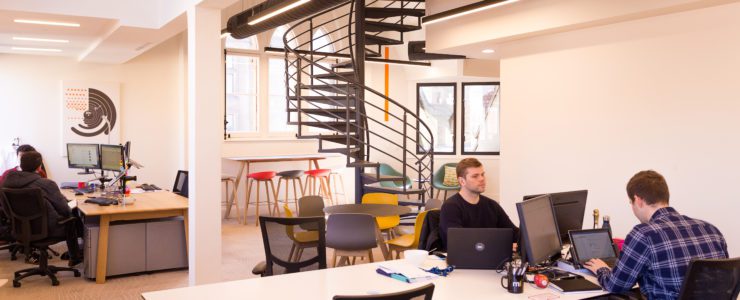
The benefits of a flexible working week
After research revealed the majority of employees would prefer a flexible working week instead of the traditional 9-5; working more flexibly is something UK employers may have to consider.
A survey by the Chartered Institute of Personnel and Development revealed a strong demand for flexible working hours from employees of all age ranges and genders – 87% of respondents said they were in favour.
The CIPD’s study says it’s difficult to define flexible working, as people have different ideas of what it means. It can be many things, including not working 9-5 and not having a daily commute to a central workplace. It can also include working flexi-time and part-time or working from somewhere other than a traditional corporate office.
Research by tech giant Microsoft echoed the CIPD’s findings, as 71% of people who had worked remotely during the past two years said they wished to continue doing so. Microsoft surveyed more than 30,000 people for its study, Hybrid Work – Are We Ready?
In addition, 37% of UK respondents said they would be prepared to relocate if it meant working for a firm with a flexible working week.
Who can work flexibly?
All employees have a legal right to request flexible working arrangements. It is known as “making a statutory application”.
Originally, the Employment Rights Act 2002 gave employees with children the right to apply for a flexible working week. Then, the Flexible Working Regulations 2006 and the Work and Families Act 2006 extended these rights to some people who cared for adults.
More than 50% of new mothers already work flexibly and 75% of businesses say the regulations have had no impact on the workplace.
While all employees today can request flexible hours, this doesn’t mean the employer has to say yes. To make a request, the employee must have worked for the same employer for a minimum of 26 weeks. This is the case in all sectors.
There are different types of flexible hours. For example, compressed hours mean employees work their total contracted hours over fewer working days. Instead of working Monday to Friday, they can choose to work four ten-hour days from Monday to Thursday and then have a three-day weekend.
Staggered shifts mean the staff work a set number of hours each day but at different times. This means they can have different start, finish and break times.
Benefits of the flexible working week
Research suggests people can benefit from the freedom that flexibility provides, while still enjoying the camaraderie with colleagues.
Public Health England suggests a flexible worker is happier and more productive. They take less time off sick, achieve more when in the workplace and will willingly stay on after 5 pm if needed.
Flexible working has a positive impact on mental health. Staff have better focus during work hours, leading to higher productivity, as they can take a break when they need to and return feeling refreshed. They can also use the hours outside work to focus on family and domestic demands.
Accommodating domestic and family needs boosts morale and motivation and improves staff retention. Flexibility also potentially increases the benefits for customers, as your business may be able to offer increased contact hours.
Flexible working is the third most desired job aspect in the UK, behind only competitive pay and a sociable workplace environment.
Are there health benefits to coworking?
Finding a work environment where people have freedom and flexibility, as well as a sense of camaraderie with colleagues, can be challenging. This is where coworking environments may help.
The individual can choose when they take a break and where they go. They can choose their working hours and take time out if needed. Coworking environments have communal areas, as well as meeting rooms, so workers can be sociable or have privacy, depending on their needs.
According to the CIPD, educating managers on the benefits of flexible working and training them in how to manage the workforce is the most effective way forward.
© Andrey_Popov / Shutterstock.com
![Headspace-©-sirtravelalot-Shutterstock.com_[1]](https://www.headspacegroup.co.uk/wp-content/uploads/2020/11/Headspace-©-sirtravelalot-Shutterstock.com_1.jpg)


